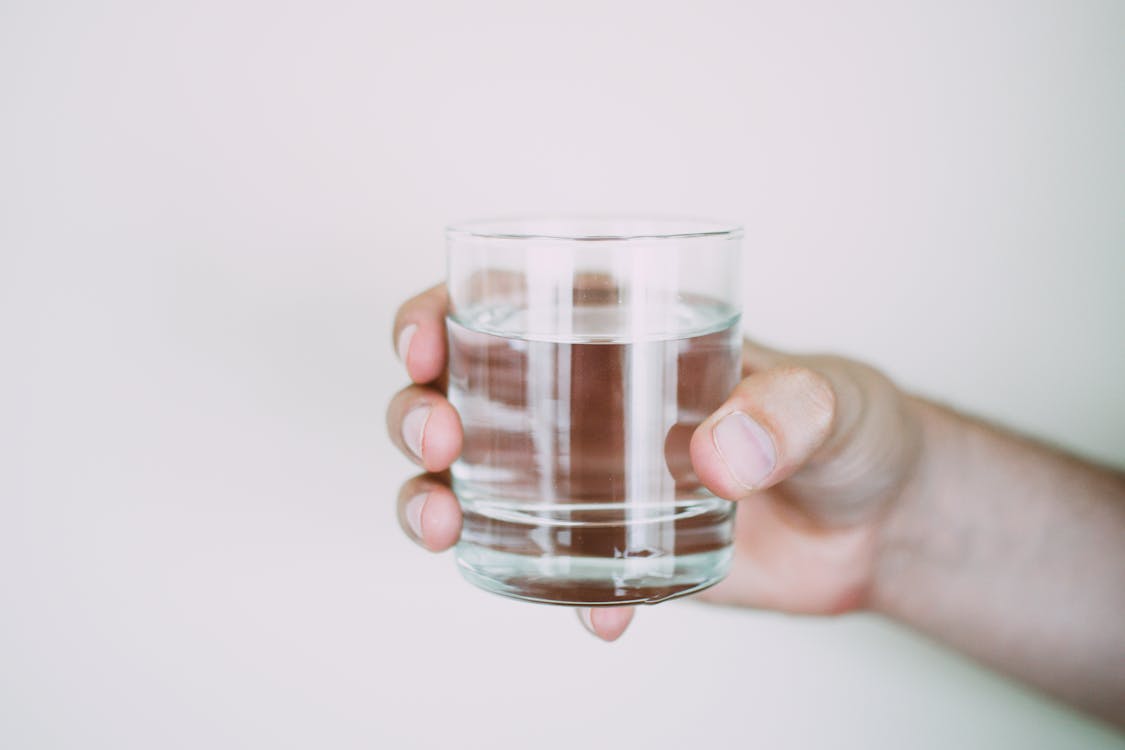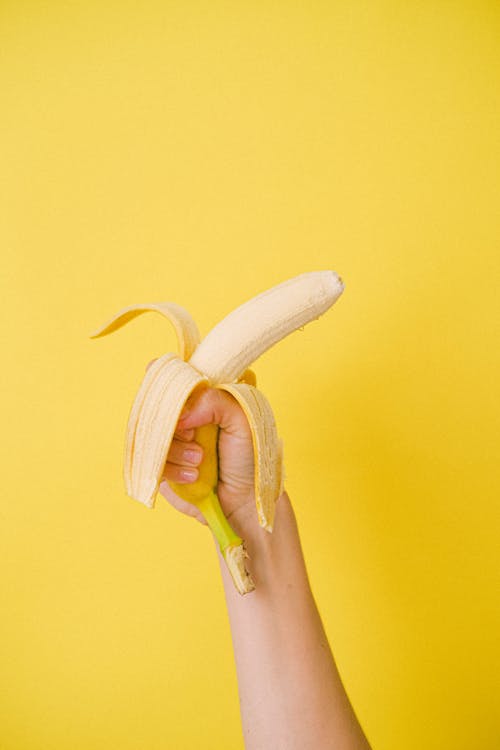Can changing my diet benefit my kidneys? Can I eat bananas?
In this article we go through 12 of the best foods for CKD patients, including bananas!
Eating and drinking and pleasure
Eating and drinking are major pleasures in life. If you have CKD, you can still have those pleasures. But there are foods that are healthier and may help your kidneys. Here goes.
‘Kidney or CKD diet’
There is no such thing as a kidney or CKD diet. You should only alter your diet or fluid intake if asked to by a trained kidney specialist (nephrologist), dietitian or nurse.
Otherwise you should consider yourself on a free diet, and encouraged to eat healthily.
This article will also focus on food myths regarding the kidneys and CKD.
Mixed healthy diet
This should contain these components:
- Carbohydrates
- Fruit
- Protein
- Salt, and other substances – e.g. potassium and phosphate
- Vegetables
- Vitamins
- Water.
Restriction of certain components of food in CKD
Some (SOME) patients with CKD will be asked to reduce sodium, potassium, phosphate and/or protein in their diet.
Please do NOT do this unless asked. These substances, which are part of a normal healthy diet, will be discussed in this article.
Now let us go through the 12 best foods (and water) for CKD – in alphabetical order after water.
1. Water
A few patients are asked to restrict or increase their water intake a day. If not asked to, you should drink normally – i.e. when you are thirsty.
Myth. There is no such thing as a ‘correct’ water intake for a human.
CKDEx has more information here: how much water should I drink a day?

Myth. There is no evidence that a high fluid intake ‘flushes the kidneys’, or reduces the likelihood of kidney stones or urinary tract infections (UTIs).
Myth. Bottled water is better than tap water
Fact. There is no evidence to suggest bottled water has more health benefits, or is of better quality, than tap water.
CKDEx has more information here: bottled vs tap water.
2. Bananas
Myth. CKD patients should avoid bananas
Fact. You CAN eat bananas. Full stop.

3. Beans
Beans, lentils, chickpeas and other pulses provide protein. They are also high in fibre and low in unhealthy fats.
4. Berries
There is no doubt that all types of berries are nutritional powerhouses. They are rich in heart-healthy antioxidants, including vitamin C, and they are low in potassium.
Some patients with CKD will be advised to reduce their potassium intake. Do not do this unless asked. If so, berries may be a good source of fruit for you.
5. ‘Carbs’ (carbohydrates)
Carbs foods like bread, potatoes, pasta, rice and other grains are part of a healthy diet. These foods are a key source of energy for the body.
But, sometimes, if you can, choose wholegrain products like wholemeal bread, brown rice, wholewheat pasta, oats and potatoes with skins on. They can ensure you get more fibre, and vitamins.
6. Eggs
Eggs are a particularly good source of protein.
They can be boiled, fried, scrambled, poached or become an omelette (see below on how to cook). Name another food that can be eaten in so many ways.
7. Fruit
Fruit is part of a healthy diet.
8. Garlic and onions
Garlic and onions are great options for seasoning food if you have CKD since they provide a robust, savoury flavour.
They also may be protective against CKD. Why? They contain allicin, a substance that appears to lower blood pressure and improve kidney function.
A 2017 study published in the International Journal of Molecular Science found that high doses of allicin (in rats) were just as effective as the high blood pressure and CKD drug Losartan (Trejo, 2017).
9. Protein
Proteins include fish, eggs, meat, milk, yoghurt and cheese. They also provide a range of vitamins and minerals – and are part of a healthy diet. However, you can also eat plant sources of protein such as lentils, beans, tofu and nuts.
10. Olive oil
A diet should be low in saturated fat, as it may reduce your risk of heart disease. That makes healthy fats like olive oil the best choice for cooking and baking.
A Mediterranean-style diet – an eating pattern rich in fruits, vegetables, fish, and heart-healthy fats like olive oil – is linked to a 50% reduced risk of developing chronic kidney disease (CKD), according to a 2014 study published in the Clinical Journal of the American Society of Nephrology (Khatri, 2014).
11. Spices
All humans need to eat some salt [“and some potassium by the way” CKDEx Ed]. But some patients with CKD need to watch their salt intake. This is especially true if you have high blood pressure or are finding your BP difficult to control.
One great way to reduce sodium from your diet is to reach for your spice rack instead of the salt shaker.
Spices like basil, curry, dill, ginger, rosemary, black pepper, paprika and mixed herbs can add flavour to any dish, whether it’s meat or a vegetables
12. Vegetables
Eat them. They are healthy. There is an old chef’s maxim,
“Never knowingly boil a vegetable.”
In other words, there are other ways to cook them, which keeps their flavour better – steam, fry etc.
Other dietary advice
Fluid restriction
Some patients with CKD5 (i.e. on dialysis or with a kidney transplants) and/or nephrotic syndrome – and a few with CKD4 – will be asked to restrict fluid intake to 1.5 or even 1L a day. They may be asked to reduce potassium and phosphate in the diet.
Only follow this guidance, if you are asked to. It may also be a temporary thing that can be relaxed when the disease improves.
Prune juice etc – avoiding constipation, and keeping your bowels moving
This is a good ‘natural triad’ to do this:
- Prune juice
- Flax seeds – on bran-like cereals
- Certain fruits – e.g. kiwi fruit.
Patients on peritoneal dialysis (PD) need to avoid constipation, as it can make the PD work less swell. So this may be useful for them (not just lactulose [“yuk” CKDEx Ed] and senna).
[Why are doctors obsessed with bowels?!” CKDEx Ed]. Cos we are weird.
Watch your weight
OK OK. Now you didn’t think we could go a whole page on 12 best foods for CKD, and not mention this.
Why? Are we just gloom and doom merchants? Maybe .. and too much probably. It is because being obese or overweight can:
- A. Be the cause of your CKD (and Type 2 diabetes if you have it)
- B. Contribute to high blood pressure
- C. Make your CKD worse (potentially bringer dialysis closer).
So, if you can lose a stone or two – or 15-30 pounds in the USA, or 6-12 kg in Europe! – it may help your CKD, BP and diabetes. That’s why we nag so much.
[“Why don’t docs ever say ‘ why not go mad tonight and have a takeaway’?” Ed]
Ok guys and girls. Go mad and have a takeaway tonight. Or even ..
A sneaky vinos
Myth. CKD patients should avoid alcohol as it ‘damages’ the kidneys (it does not)
Fact. So, if you are not having a takeaway (!), why not have an occasional sneaky vinos whilst cooking – it’s fine.
[“Ps olives go well with it”. Ed]
Summary
We have gone through 12 foods that are good for CKD patients. You should eat healthily and only restrict dietary components if you have been asked to. Eating and drinking are major pleasures in life.
Other resources
Healthy eating for CKD patients
Healthy lifestyle for CKD patients
This article was reviewed by Neha Shah, Bariatric Dietitian,
who runs an excellent Instagram channel. This is her website.
Oh yes. This is how make and serve an omelette. Delia Smith’s trick is the ‘last flip on the plate’:
Last Reviewed on 9 July 2024
